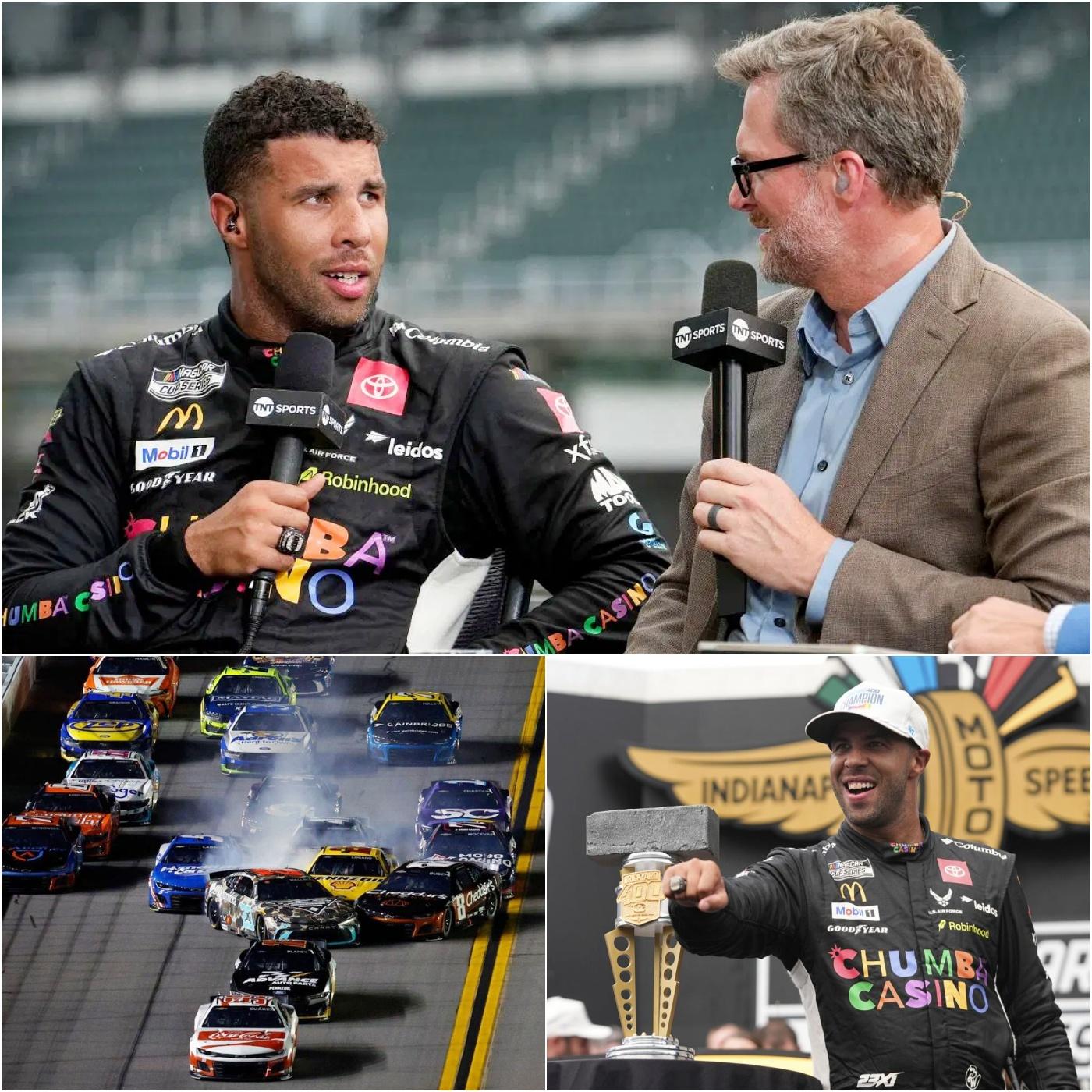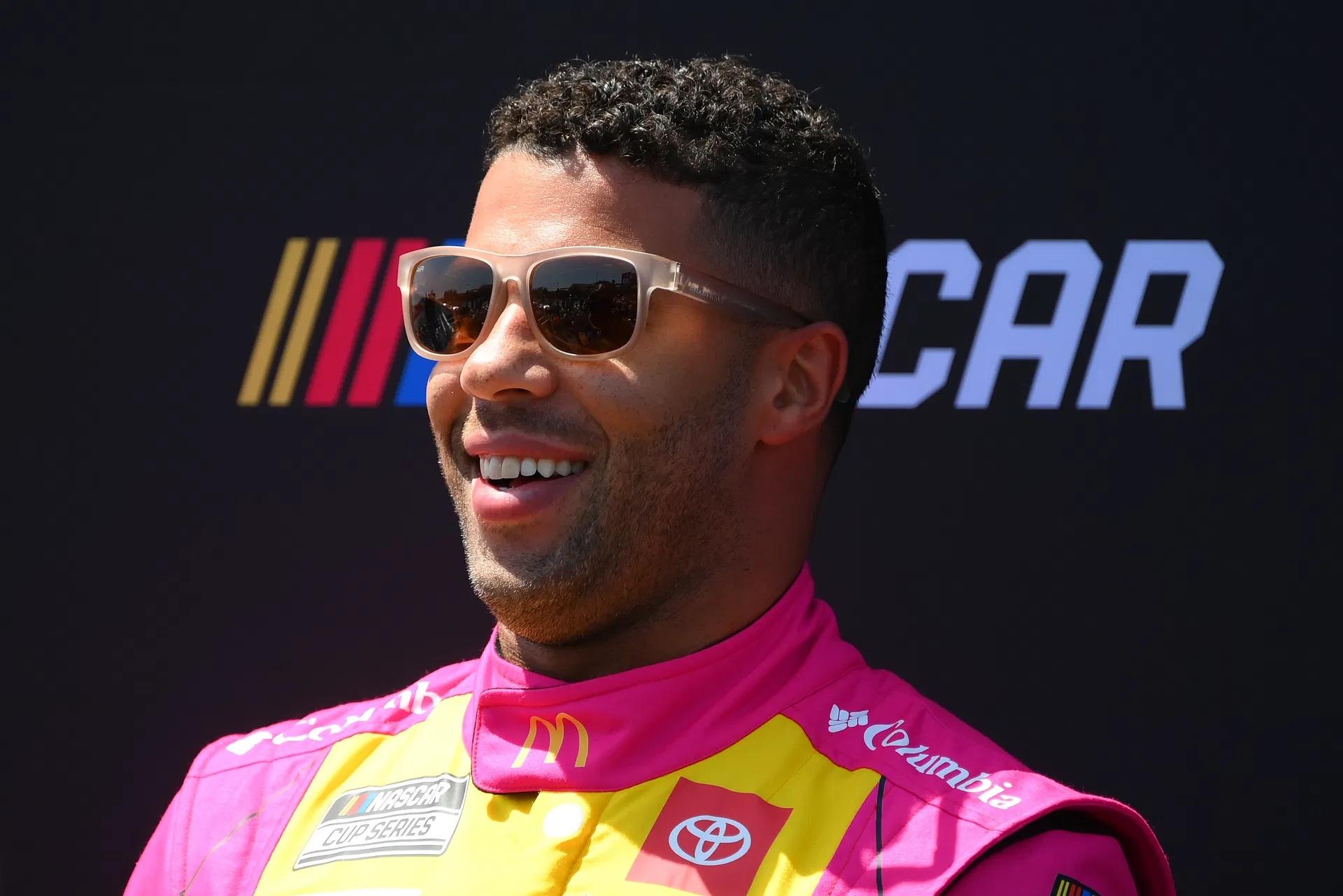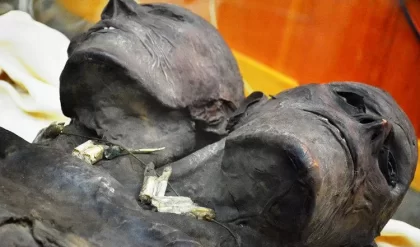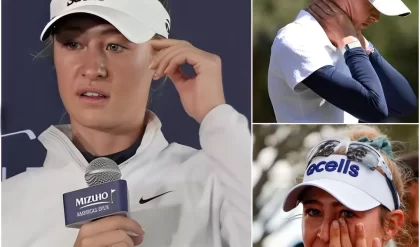Bubba Wallace, the 23XI Racing driver known for his fiery personality and historic achievements, recently tackled the persistent narrative labeling him as “cocky” or “arrogant.” In an interview with Rubbin is Racing, Wallace leaned into his reputation with unapologetic confidence, offering a glimpse into the mindset that has fueled his rise in NASCAR’s Cup Series. “You embrace it, and that’s how I am,” Wallace said, acknowledging the criticism while defending his playful, outspoken nature. “Sometimes it can be labeled as me being cocky or arrogant or me being a jerk or an a**hole, and it’s like, man, I’m just here to have fun and poke fun.” His candid response reveals a driver who refuses to be boxed in by public perception, instead choosing authenticity over conformity.

Wallace’s journey in NASCAR has been anything but ordinary. As the only Black driver competing full-time at the Cup Series level, he carries a unique weight, balancing personal expression with the demands of a high-pressure sport. His 2025 season has been a testament to his resilience, marked by a standout victory at the Brickyard 400 on June 27, where he became the first Black driver to win a major event at the Indianapolis Motor Speedway. Holding off Kyle Larson through two rain-delayed restarts, Wallace showcased not just skill but mental fortitude, ending a 100-race winless streak. The triumph was a defining moment, yet it came with the familiar chorus of boos from some fans, a reminder of the polarizing figure he remains.
Despite the criticism, Wallace’s performance this year speaks for itself. With one win, ten top-10 finishes, four top-fives, and 259 laps led across 25 races, he has proven his ability to compete at the highest level. His average finish of 18.16 reflects a season of highs and lows, including six DNFs, but his recovery from setbacks—like a devastating pit stop error at Richmond where a loose tire cost him a potential win—demonstrates his growth. “Going back and looking at the footage, it was just a really freak deal where the lug nut fell off the gun,” Wallace explained, accepting the mistake while emphasizing his team’s effort to rebound. His ability to salvage points from bad days, like a sixth-place finish at Iowa after starting outside the top-30, underscores a driver who thrives under pressure.
Wallace’s outspokenness extends beyond the track. In 2020, he played a pivotal role in NASCAR’s decision to ban the Confederate flag, a move that sparked both support and backlash. Reflecting on the ban during an appearance on The Breakfast Club, he said, “I can honestly say the sport has been way better without it.” The decision cemented his status as a lightning rod for change, amplifying his visibility while inviting scrutiny. Yet, Wallace remains steadfast, viewing his role as both a competitor and a cultural figure. “I sense a responsibility there to carry myself the right way, but also show that I’m here to stay and make a name for myself,” he noted, acknowledging the delicate balance of pushing boundaries while learning from mistakes.
The Alabama native’s personality—equal parts humor and intensity—has often been misconstrued. In the Rubbin is Racing interview, he admitted to being the “biggest shi*-talker in the garage,” a trait he sees as part of his charm rather than a flaw. This brashness, paired with moments of vulnerability, humanizes Wallace in a sport where drivers are often reduced to their results. His emotional celebration at Indy, where he lifted his infant son Becks in a Lion King-inspired moment, won over fans who chanted his name, transforming boos into cheers. “I didn’t realize the African-American side until hours later, and it’s still incredible,” Wallace said, reflecting on the historic weight of his Brickyard win.

Wallace’s personal life adds another layer to his story. As a husband to Amanda and father to Becks, he has opened up about the sacrifices required to compete at NASCAR’s pinnacle. In an ABC News interview, he spoke candidly about missing family time due to the sport’s grueling schedule. “You have to work your tail off and you have to sacrifice a lot,” he said. “Sometimes that’s a lot of family time at home. Especially when you get older and start having kids, you miss out on a lot of important moments.” Despite these challenges, Wallace strives to stay grounded, drawing perspective from fatherhood and daily meditations from The Daily Stoic. “The wise doesn’t have problems,” he quoted, highlighting how he reframes setbacks as opportunities.
On the track, Wallace’s 2025 season has been a rollercoaster. His win at Indianapolis was a high point, but incidents like the Daytona crash, where a bump from Kyle Larson triggered a 12-car pileup, highlight the fine margins of NASCAR. Wallace took responsibility, stating, “It looks like I was three wide and the five hit me and got me down there. Hate that we got up to bunch cars, so I think I looked and it was blame Bubba Wallace National Day today, so I’ll take the blame.” His willingness to own mistakes, even when shared, contrasts with the narrative of arrogance, painting a picture of a driver who is self-aware yet unrelenting.
Comparisons to his 23XI Racing teammate, Tyler Reddick, have also shaped Wallace’s season. While Reddick ranks higher in points, Wallace’s speed has been superior, as noted by NASCAR veteran Kevin Harvick on his Happy Hour podcast. “I think that Bubba has been superior from a speed standpoint,” Harvick said, pointing to Wallace’s raw pace despite Reddick’s consistency. Wallace himself acknowledged the internal pressure to match Reddick’s success, telling Harvick, “Seeing the success of the 45, not from a jealousy standpoint, but it’s like ‘I have the same stuff,’ and I feel like I’m just as competitive as Tyler.” This self-imposed pressure drives Wallace to push harder, whether in the gym or team meetings, refusing to settle for mediocrity.
As Wallace heads into the 2025 playoffs, starting with the Cook Out Southern 500 at Darlington Raceway on August 31, he carries a stress-free mindset, a rarity for a driver who has often faced intense scrutiny. “I’m good. First time. I’ve never been in a spot, mentally. It’s been really, really nice,” he said, reflecting on his secured playoff spot. Darlington, a track where he won the pole last year, offers a chance to build on his momentum. His ability to navigate its demanding egg-shaped layout will test his growth, both as a driver and as a figure who transcends the sport.
Wallace’s story is one of defiance, growth, and authenticity. He refuses to shy away from his identity, whether as a Black driver breaking barriers or a competitor unafraid to speak his mind. His journey challenges fans to look beyond headlines, to see the man who balances family, fame, and the relentless pursuit of victory. As he continues to carve his legacy, Wallace remains a polarizing yet undeniable force in NASCAR, proving that confidence, not arrogance, is the fuel behind his success.





